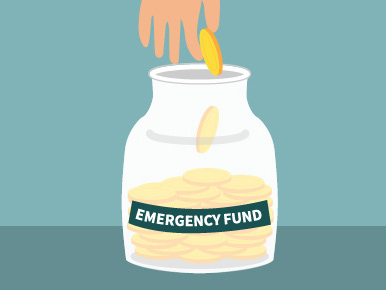Whether you’re a single parent, or a couple in which one partner is not in paid employment, managing a family on one income can come with some challenges.
Instead of having two earners to call on – and potentially provide a backstop should something happen to one – you’re relying solely on the income potential of one person.
Whether you’re in that situation for the short-term, or likely to be single-income for some time, there are a few things you can think about to boost your financial security.
Diversifying your income
If your family relies solely on the income of one person, it makes it particularly important that nothing interrupts that earning.
But when you’re relying solely on a job, or a business as a self-employed person, it can mean your family is vulnerable to the performance of the companies in question, or the sector they are in.
To help reduce the reliance on one source of money, you could think about creating additional income sources that could act as a backstop for you if something interrupted your main employment. That might be something that could come from an investment portfolio, or a second job or business that you set up in your spare time.
Building a backstop
If you had to come up with some money in a hurry, could you do it?
An emergency fund can be especially helpful for a single-income family, and is designed to be available for those situations when money is needed quickly.
Perhaps you finish up at a job and have some unexpected time off work before you start new employment, or something happens to the car and there is an expensive mechanic’s bill.
If you don’t already have a rainy day savings fund set up, you could work towards having the equivalent of three to six months’ income set aside, so that if something unexpected happens, it does not knock your family off course, financially.
Creating a safety net
Insurance can be a really helpful tool to deal with larger emergencies.
Income protection or rent and mortgage cover can step in to help keep bills paid if your family’s income-earner is not able to work for a period of time due to illness or injury.
If you have a stay at home parent who is not in paid employment, you might also consider different types of cover for them. Policies such as trauma, total permanent disability and life cover may be useful covers that could help a family to cover the costs of replacing the unpaid labour of a stay-at-home parent.
Financial planning
Do you have clear short- and long-term goals for your family’s financial future?
Studies have shown that people who set measurable goals are much more likely to succeed than those who just have a vague mental idea of what they’d like to do.
It could be a good idea to sit with your partner or family every six months or so – or any interval that works for you – and determine what your goals are, and how well you are on track for those you set earlier.
External input from a professional financial adviser could also be useful.
Like to talk?
If you’d like to talk about protecting your single-income family financially from anything life might throw at you, get in touch with us today. We can talk about how insurance could give you peace-of-mind, and what might be suitable for your circumstances.
Disclaimer: Please note that the content provided in this article is intended as an overview and as general information only. While care is taken to ensure accuracy and reliability, the information provided is subject to continuous change and may not reflect current developments or address your situation. Before making any decisions based on the information provided in this article, please use your discretion and seek independent guidance.












